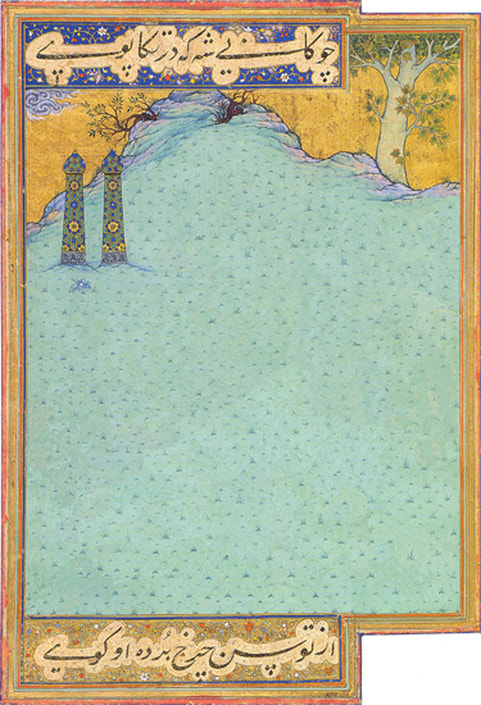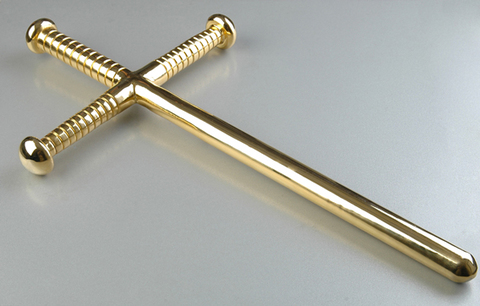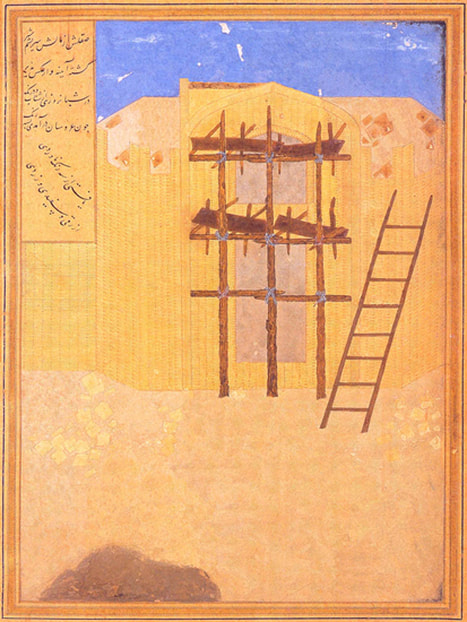Shahpour Pouyan: History Travels at Different Speeds / 23 September - 13 November 2015
|
Copperfield Gallery is pleased to present the first UK solo exhibition of Shahpour Pouyan (born Iran 1980, lives and works in NYC).
There are parallel trajectories in history; things concealed under an overwhelming narrative of power and reform, tumult and prosperity. For his solo exhibition Iranian artist Shahpour Pouyan strips a series of celebrated Persian miniatures of their central figures in an attempt to coax the unspoken from their backgrounds. Presiding over the exhibition is Memorial Cross, a crucifix of gleaming batons which draws together the uncanny synchronicity of two cultural histories. History appears to travel at different speeds depending on our points of perspective. By the Gregorian year 2010, the Iranian Calendar found itself lingering at 1389. This year saw the middle class citizens of Tehran brutally repressed. Countless numbers of people, photographers and reporters were left aching, raped and beaten by batons. Sometimes anger was swallowed once again and everything returned to normal. Sometimes the people fought back, batons were seized and became signs of victory. While in 1389 reformers were beaten in Iran, in Europe the Gregorian year 1389 saw the culmination of the reign of Pope Urban VI. Elected with the desire to reform the clergy, Urban VI’s reign was characterized by a programme of violence against those thought to have been conspiring against him, people were imprisoned at will and brutally mistreated. Memorial Cross draws an uncomfortable parallel between these histories. The choice of what to represent is simultaneously a decision of what to discard or hide. In 16 new works made for the exhibition Pouyan attempts to recover what is left unseen in Persian miniatures. Art historians have focused on the de-emphasized landscape and egalitarian distribution of figures in Persian Miniatures, yet, the socio-political context of these miniatures does not fit this claim. It says something rather different; it tells a story of the superiority of tradition and patterns of life over the freedom of the individual. By removing the figures in works such as after Building of Castle of Khawarnaq, (below), Pouyan draws attention to the subtleties, camouflaged in the aesthetics of these miniatures. By disrupting the apparently seamless interlocking of the subject and the background, the context itself comes to the fore, in all its detail, beauty and authority. There is a discomfort evoked by these images, now devoid of their mythic and historic characters. These images become fabricated records of the real world hidden behind carefully constructed narratives. They illustrate possibilities that were never realized or represented. Click here to see the artist CV. |



